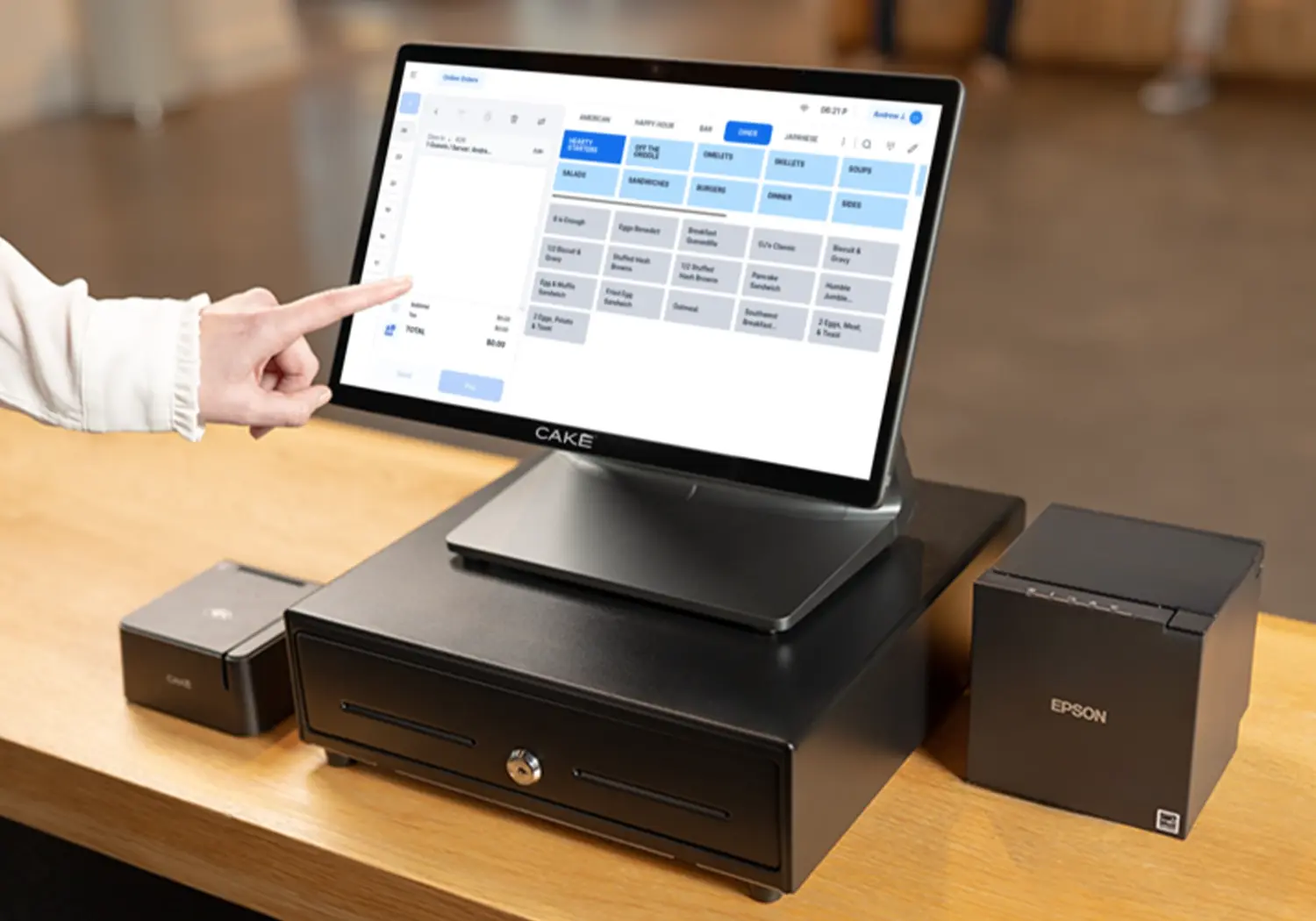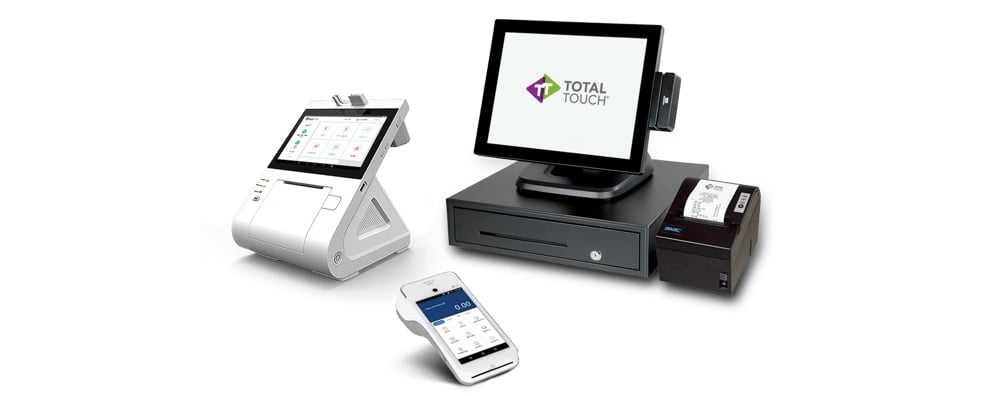Clover Pos Things To Know Before You Get This
Clover Pos Things To Know Before You Get This
Blog Article
Pos Machine Can Be Fun For Everyone

Point of Sale: Retail Point-Of-Sale Solutions Streamline Transactions
Getting The Pos Software To Work

Hardware Parts of a Point of Sale System What makes a POS system tick? It's not just software application; the hardware plays a starring function. Believe of it as the body to the software's brain. Without the ideal hardware, even the most advanced POS software application is simply a pretty face. Important POS Hardware So, what are the must-haves? Let's break it down. The main processing unit, often a computer system or tablet, is the heart of the operation. The monitor or touchscreen display enables staff to communicate with the system. A barcode scanner accelerate the checkout procedure. Remember the days of by hand getting in each code? The trusty receipt printer offers customers with a record of their purchase. A cash drawer keeps your cash safe and organized. A card reader enables clients to pay with credit or debit cards. Diving Deeper: Beyond the Fundamentals But wait, there's more! Depending on your business, you may need specific hardware. more info A dining establishment might integrate kitchen printers to relay orders, while a retail store might use label printers for product tagging. Ever question how your local bakery immediately prints those delicious-looking labels? Picking the Right Hardware: A Balancing Act Choosing the best hardware isn't just about purchasing the most costly equipment. It's about discovering the sweet spot between functionality, sturdiness, and budget. A small company just beginning may choose for a more basic setup, while a high-volume retailer will require robust, high-performance machines. Is it better to buy brand-new or utilized? Consider your alternatives carefully. A new system provides the current innovation and service warranty security, however a refurbished system can save you cash. The Future of POS Hardware What does the future hold? Expect to see much more combination with mobile devices, biometric scanners for staff member authentication, and advanced analytics dashboards displayed on bigger, clearer screens. Imagine a world where stock is immediately updated in real-time as products are scanned-- a world where you can track your best-selling item from throughout the world. The possibilities are endless, and the hardware is constantly progressing to fulfill the demands of today's services. Are you ready to update your point of sale system?
Software Features and Capabilities: The Heart of Your POS System
Ever watch a seasoned barista move through a busy morning rush? Their trick isn't just caffeine; it's a seamless dance with their POS system. The software is the conductor of your business symphony, managing everything from sales to inventory. But what notes should you be listening for? What abilities really matter in today's market?
Stock Management: Beyond Counting Beans
Forget spreadsheets that haunt your dreams. Modern POS systems offer real-time stock tracking, informing you when your stock of artisanal coffee beans dips precariously low. Think of it as a digital guardian angel, preventing those awkward "Sorry, we're out!" moments to clients. What if you could likewise anticipate demand based on historic information? Numerous systems now offer forecasting tools, a powerful weapon against overstocking and lost sales. This helps prevent the predicament of running out of popular products or collecting excess inventory of slow-moving items, both of which can constrain money circulation and space.
Sales Reporting and Analytics: Decoding the Data
Sales data is the new gold, and your POS system is the miner. Forget feeling in one's bones just how much you offered today. Dive deep into the information to uncover trends, determine your very popular items, and comprehend client habits. Which menu product sets completely with the day-to-day special? Which promotion resonated most with your customers? These insights are not just fascinating; they're actionable intelligence. Without dependable sales reporting, navigating the intricacies of organization decision-making becomes like cruising without a compass, increasing the opportunity of missteps and missed out on chances.
Consumer Relationship Management (CRM): Structure Bridges, Not Walls
Remembering a routine client's name and favorite order is captivating, but scaling that individual touch is challenging. POS systems with CRM capabilities permit you to track consumer purchase history, preferences, and even birthdays. Picture instantly using a discount rate on their birthday-- a small gesture that fosters commitment and encourages repeat business. There is the prospective snag of bad information quality, which can lead to inaccurate client profiles and inadequate marketing efforts.
Payment Processing: Enhancing the Deal
The checkout experience can make or break a sale. Smooth combination with numerous payment techniques-- charge card, mobile wallets, even copyright-- is non-negotiable. Can your system manage split payments? Does it use secure tokenization to secure client information? A cumbersome payment process resembles striking a sour note in your organization symphony, potentially disrupting the entire efficiency. Ensuring compatibility with evolving payment technologies and adherence to security standards are critical for keeping consumer trust and functional performance.
Staff Member Management: Keeping the Group in Sync
From clocking in and out to managing permissions and tracking efficiency, staff member management features improve operations and improve accountability. Is scheduling a nightmare? Lots of POS systems provide integrated scheduling tools, enhancing staffing levels based upon anticipated demand. A common obstacle that is often neglected is the obstacle of incorporating employee management functionalities with payroll systems, which can cause errors and ineffectiveness in wage estimations.
Advanced Characteristics: Leveling Up Your Operations
- Table Management: Suitable for dining establishments, this function enables you to visualize your dining-room, track table status, and manage reservations.
- Commitment Programs: Reward your best clients and encourage repeat service with incorporated commitment programs.
- Online Ordering Integration: Seamlessly incorporate your POS system with online purchasing platforms to broaden your reach.
Picking the best POS system has to do with more than just functionality; it's about discovering a partner that can grow with your organization. Consider your present requirements, prepare for future development, and do not hesitate to ask the difficult concerns. The right software can change your company from a disorderly cacophony into a harmonious work of art.
Industry-Specific POS System Applications
Consider the regional bakeshop, dynamic with early morning consumers craving fresh croissants. A generic POS system might manage transactions, but can it handle complicated dishes, track active ingredient inventory, or instantly change production schedules based upon sales information? Probably not. That is where the appeal of industry-specific POS systems shines.
Restaurants and Hospitality
For busy dining establishments, speed and precision are critical. How numerous times have you seen servers managing orders, modifications, and splitting expenses, all while attempting to supply exceptional service? A restaurant POS system simplifies these processes, permitting table management, kitchen order tickets, and even online purchasing combination. These systems often include features like ingredient-level inventory tracking, important for handling food expenses and reducing waste. Ever question why your preferred meal is sometimes not available? It might stem from an absence of appropriate inventory management.
- Table Management
- Cooking Area Order Tickets
- Online Ordering Combination
- Ingredient-Level Stock Tracking
Retail Solutions
Retail, with its diverse inventory and customer interactions, requires a various set of tools. Imagine a boutique clothes shop struggling to keep track of sizes, colors, and seasonal collections using a basic checkout system. An industry-specific retail POS system provides features like barcode scanning, customer loyalty programs, and comprehensive sales reporting. These systems can even incorporate with e-commerce platforms, offering a seamless omnichannel experience for customers. Did you know some retail POS systems can forecast future sales patterns based on historic information? Now that is effective!
The Hazards of an Inequality
Choosing the incorrect POS system can produce significant operational hurdles. A clothing shop using a dining establishment POS, for example, would find it inappropriate for managing stock with sizes and colors. The lack of appropriate reporting and analytics could lead to misinformed purchasing choices and lost earnings. The result might be similar to trying to fit a square peg in a round hole.
Secret Considerations
Choosing an industry-specific POS system needs cautious examination. Consider your business's distinct requirements and operational workflows. Does the system incorporate with existing software application? Does it use the needed reporting abilities? Is it scalable to accommodate future growth? A well-chosen POS system is not just a deal tool; it's a tactical property that can drive effectiveness, improve consumer complete satisfaction, and ultimately, enhance your bottom line. Remember, it is an investment in your company's future, not just an expenditure.
Security Factors To Consider for Point of Sale Systems
Ever heard the tale of the mom-and-pop store that lost whatever since of a single, neglected security flaw in their POS system!.?. !? It's a cautionary tale, and it highlights a critical element typically overshadowed by the allure of elegant features and structured operations. The reality is, a POS system is just as great as its security. What great is a system that crunches numbers in a flash if it permits criminals to swipe client's information simply as rapidly?
The Vulnerability Minefield
The digital landscape is a battlefield. Every POS system, no matter size or elegance, is a potential target. Are you genuinely prepared for the hazards lurking around the corner? The genuine pinch comes when you find that your out-of-date software application has an open hole that hackers can exploit, turning your organization into an unwitting accomplice in identity theft. The problem is that hackers are crafty and are always altering their strategies.
Typical Security Gaps and Professional Tips
- Weak Passwords: "Password123" isn't cutting it. Use strong, unique passwords for all POS system accounts and alter them regularly. Two-factor authentication is a must.
- Unsecured Networks: Your Wi-Fi is like leaving the front door open. Protect your network with strong encryption (WPA3 if possible) and consider a different network for your POS system.
- Outdated Software Application: Software suppliers patch security holes all the time. Failing to upgrade is like inviting trouble. Establish automatic updates or schedule regular maintenance.
- Employee Training: Your staff is your very first line of defense. Train them to acknowledge phishing attempts, secure passwords, and report suspicious activity.
Information File Encryption: Your Shield Versus the Dark Arts
Believe of information file encryption as a secret code. It scrambles sensitive info, like charge card numbers, making it unreadable to unapproved users. Without file encryption, your customers' monetary information resemble sitting ducks, ripe for the picking by cybercriminals. It's not simply about securing your consumers; it has to do with protecting your credibility and preventing significant fines.
PCI Compliance: The Rulebook You Can't Ignore
If you accept credit cards, you're bound by the Payment Card Industry Data Security Standard (PCI DSS) It's a set of security standards developed to safeguard cardholder data. Failing to comply can result in fines, charges, and even the loss of your capability to process charge card payments. It's a headache, yes, but it's an essential one. Believe of PCI compliance as the cost of doing company in the digital age.
Consider this: every deal processed through your point of sale is a potential entry point for malicious stars. By implementing robust security procedures, you're not simply securing your company; you're securing your clients' trust and guaranteeing the long-lasting practicality of your operations. The security of your POS system isn't simply a technical problem; it's a company important. It needs constant alertness, proactive measures, and a dedication to remaining ahead of the curve.